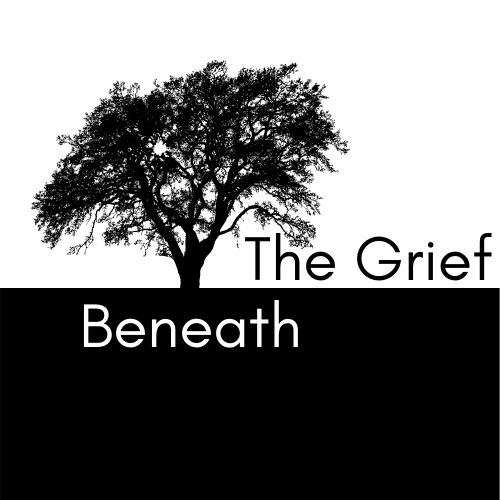‘Beneath The Grief is like grief itself’: Community space aims to help people grieve through the arts

Photo courtesy of Beneath The Grief
Beneath The Grief provides a space for community members to share about their grief experiences through the arts, either publicly or anonymously.
May 30, 2023
Content Warning: This story contains mentions of death.
The death of millions across the world due to COVID-19 has caused many people to grieve — but countless without an outlet to express their experiences.
Beneath The Grief, a community born during the pandemic, aims to hold space for individuals to publicly or anonymously share their experiences with grief through the arts.
The idea behind the project came to Alec Wilson at the end of 2020, months after his father died from cancer.
“That’s (when) I founded Beneath The Grief,” said Wilson, now a senior at Roycemore High School in Evanston in Evanston. “(It’s) a place for people to — through the pandemic — still keep on sharing their stories about grief.”
Wilson recalls needing a space to talk through his own grief after his dad died. But, he said many grief support groups closed during the pandemic due to health restrictions.
Following his father’s death, Wilson would write memories of him on post-it notes that later became the seeds for Beneath The Grief.
“It was a place for me to record memories that I did not want to be forgotten,” Wilson said.
Wilson was managing schoolwork while creating Beneath the Grief, which made it difficult for him to be fully devoted to the project.
Earlier this year, two other Roycemore students reached out to Wilson to contribute to the effort.
“Them asking to work on this really reinvigorated my interest,” Wilson said.
Ryyan Rehman, executive director at Beneath The Grief and a current junior at Roycemore, was one of the individuals who reached out to Wilson.
“Throughout my life, I’ve experienced a lot of grief,” Rehman said.
Rehman said he recognizes that while it can sometimes be challenging to balance school work and mental health, helping others through Beneath The Grief also engages him.
Beneath The Grief exists mostly online and has even expanded to other countries, according to Rehman.
“We’re hoping to make Beneath The Grief a worldwide name, to have people able to express their problems (and) their hardships without any shame,” Rehman said.
He added that people from immigrant families can also face obstacles dealing with grief when there are sentiments that stigmatize it.
Wilson said Beneath The Grief is working to expand through its ambassador program, partnerships with schools and organizations and its most recent project called “The Memory Collective.” The project would provide a way for community members to record a memory or memories they would like to preserve.
Alex Murphy, a junior at Roycemore High School, is currently an ambassador for the group. She said her past involvement with community organizations encouraged Wilson to invite her to apply to be an ambassador.
Ambassadors are tasked with making connections with other schools, she said.
“I hope that with the establishment of (Beneath The Grief’s) connections with other schools, (grief) won’t be stigmatized,” Murphy said.
She added that Beneath The Grief has also helped shape the culture in schools when approaching conversations about mental health and grief.
“Everyone’s grief matters,” Murphy said. “It’s possible to grieve someone who isn’t dead but maybe that you cut contact with and you’re grieving a toxic relationship.”
While the group is currently student-run, Wilson says the community is open to everyone and he hopes individuals will see the ability to see that art can be used as a way to share about grief.
“Beneath The Grief is kind of like grief itself, in the sense that it’s constantly changing. There’s no wrong or right way to grieve,” Wilson said. “Anything in grief is acceptable … Because there is so much variety in the way that people can grief, it can be daunting.”
As Wilson prepares to leave for college, he said he also cares about the group’s sustainability long-term.
He hopes his younger peers will be invested in the work so that Beneath The Grief can continue to exist.
“Beneath The Grief is surrounded by the community and that’s what builds it up,” Wilson said. “If we don’t have that community, then we don’t have enough listeners. We want people to listen to each other.”
Email: [email protected]
Twitter: @nedaziakim
Related Stories:
— Evanston therapists facilitate healing through art
— Communication senior’s film “Grief Night Club” addresses mental health through music, song and dance

